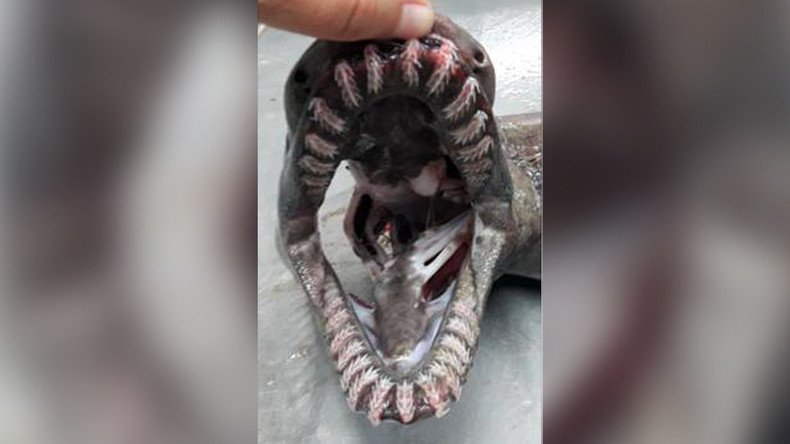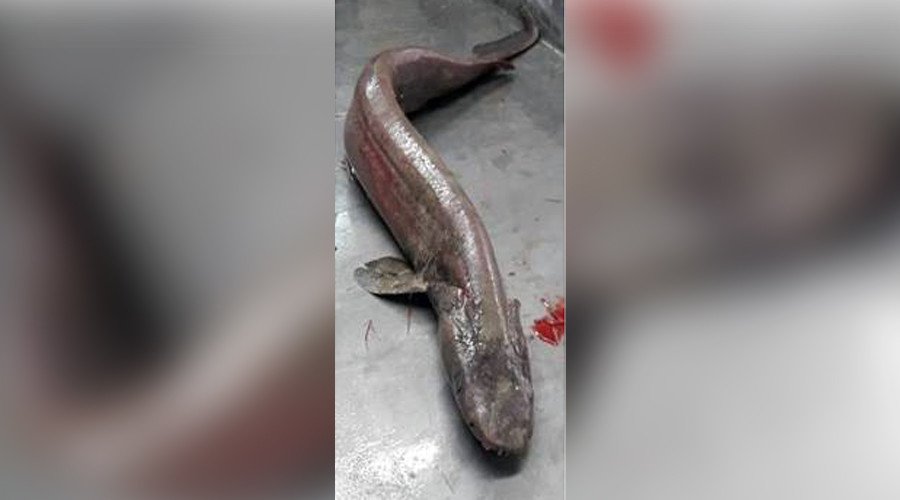Mystery shark caught off Portugal belongs to 80mn year old species (PHOTOS)

A group of scientists working on an EU research and conservation mission captured a terrifying-looking shark off the Algarve coast in August – but struggled to identify it, until now.
Scientists from Portugal's Institute for the Sea and Atmosphere (IPMA) have dubbed the catch a "living fossil", after using techniques to identify the animal that indicates the species dates back almost 80 million years. The male frilled shark (Chlamydoselachus anguineus) measured 1.5 meters (5ft) in length and was caught at a depth of roughly 700 meters (2,300ft) in waters off the resort of Portimao.

The shark boasts an intimidating arrangement of some 300 teeth arranged in 25 rows "which allows it to trap squid, fish and other sharks in sudden lunges," according to Margarida Castro of the University of the Algarve. Its typical habitat is deep underwater in the Atlantic and off the coasts of Australia, New Zealand and Japan.
The frilled shark possesses dorsal, pelvic and anal fins allowing it to lunge at its prey in a similar technique used by terrestrial snakes, reports The IB Times.
The IPMA researchers were participating in the EU’s MINOUW Project whose objective is the gradual elimination of discards in European marine fisheries. “We aim to minimise unwanted catches by incentivising the adoption of technologies and practices that reduce bycatch and discards, and avoid damage to sensitive marine species and habitats.”
READ MORE: Vandals hack parts off great white shark washed up on California shore (PHOTOS)












